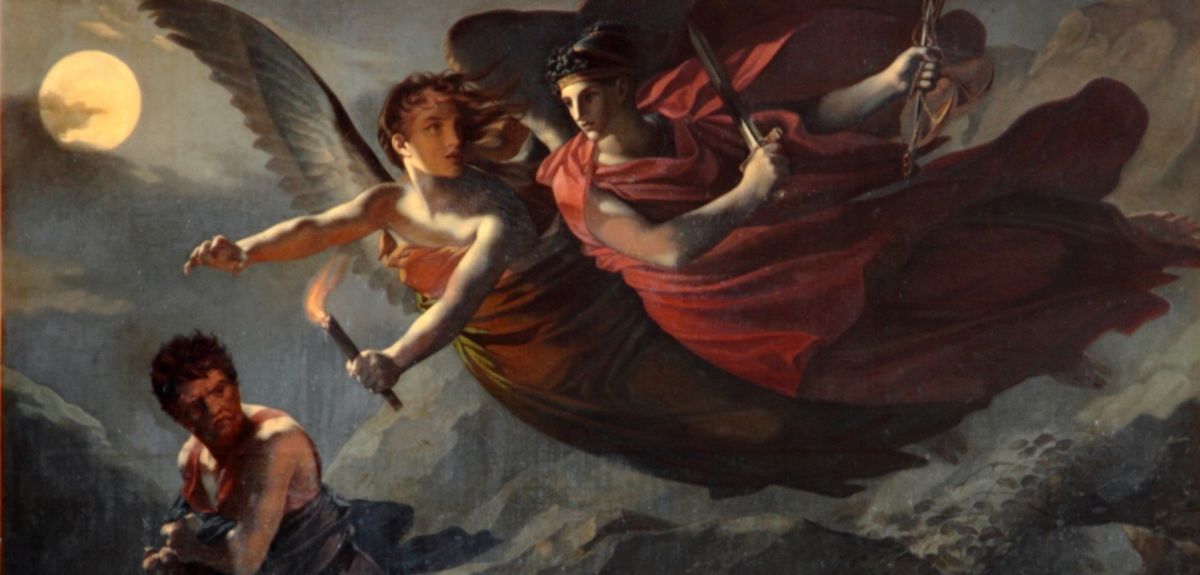
Moralizing gods appear after, not before, the rise of social complexity, new research suggests
The idea of morally concerned gods is by no means universal. While in many small-scale societies the ancestors and deities may demand continual rites and sacrifices to please and appease them, they may be quite unconcerned with how people treat each other.
However, the world religions known today either demand belief in all-seeing punitive deities or some kind of broader mechanism for rewarding the virtuous and punishing the wicked – for example, based on karma. In recent years, anthropologists have debated how and why these moralizing religions came into being. One popular theory is that all-seeing punitive gods were vital for the birth of civilization.
A new study led by researchers at the University of Oxford published in Nature, turns that theory on its head, arguing that moralizing gods only appeared after the sharpest rises in social complexity.
The team assembled and analysed data on social complexity and religious beliefs and practices from 414 independent political units from a sample of 30 world regions over the past 10,000 years of world history. Their results contradict prevailing theories by showing that beliefs in gods who punish moral violations are a consequence, not a cause, of the evolution of complex societies.
The international group of scholars, including first authors Harvey Whitehouse and Pieter François (University of Oxford) and Patrick Savage (Keio University, previously University of Oxford), found that standardized religious rituals appeared much earlier than beliefs in moralizing gods, suggesting that collective identities are more important than religious beliefs for facilitating cooperation.
Professor Whitehouse said: ‘The original function of moralizing gods in world history may have been to hold together large but rather fragile, ethnically diverse societies. It raises the question as to how some of those functions could still be performed in today’s increasingly secular societies – and what the costs might be if they can’t. Even if world history cannot tell us how to live our lives, it could provide a more reliable way of estimating the probabilities of different futures.’
The new research utilised ‘Seshat: Global History Databank’, co-founded by Peter Turchin (University of Connecticut) together with Whitehouse and Francois.
Prof Francois said: ‘The database uses a stratified sample of the world’s historical societies allowing researchers to analyse hundreds of variables relating to social complexity, religion, warfare, agriculture and other features of human culture and society that vary over time and space. Now that the database is finally ready for analysis, we're poised to test a long list of theories about global history.’
Read more in The Conversation: ‘Big gods came after the rise of civilisations, not before, finds study using huge historical database’.
Read the full paper in Nature: ‘Complex societies precede moralizing gods throughout world history’.
 Oxford establishes Ashall Professorship in Artificial Intelligence following Ashall donation
Oxford establishes Ashall Professorship in Artificial Intelligence following Ashall donation
 Oxford launches new storytelling competition with management and production company, 42
Oxford launches new storytelling competition with management and production company, 42
 Four Oxford academics receive ERC Synergy Grants to address complex scientific problems
Four Oxford academics receive ERC Synergy Grants to address complex scientific problems
 Redefining net zero will not stop global warming, new study shows
Redefining net zero will not stop global warming, new study shows
 New Oxford-led initiative launches to train future leaders in life and environmental sciences
New Oxford-led initiative launches to train future leaders in life and environmental sciences